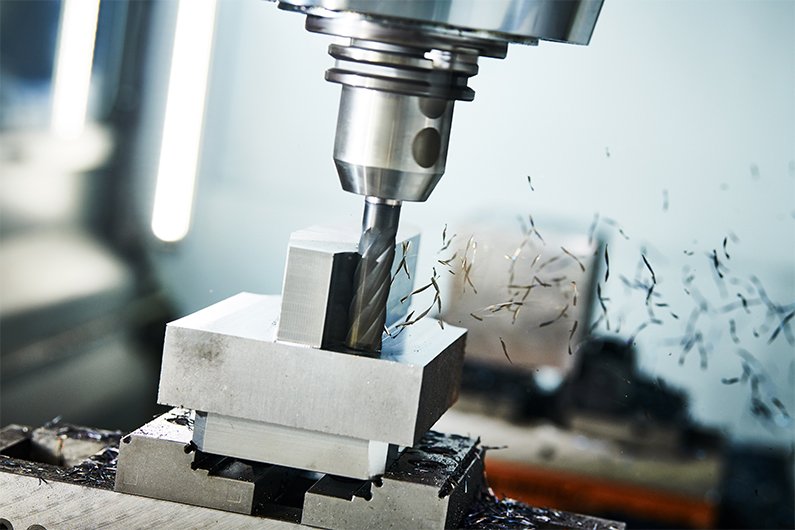Introduction
Aluminum is a versatile and widely used metal in various industries due to its lightweight, high strength-to-weight ratio, corrosion resistance, and excellent conductivity. However, its bare surface is susceptible to corrosion and oxidation, which can degrade its performance and aesthetics. To overcome this challenge, conversion coatings are commonly applied to aluminum surfaces. This article aims to explore the benefits and applications of conversion coating for aluminum surfaces.
What is Conversion Coating?
Conversion coating refers to the process of chemically treating the surface of a metal to convert it into a thin, protective layer. In the case of aluminum, conversion coating involves the formation of a layer of aluminum oxide (Al2O3) or aluminum phosphate (AlPO4) on the surface. This conversion layer acts as a barrier, preventing direct contact between the aluminum substrate and the surrounding environment.
Benefits of Conversion Coating for Aluminum Surfaces
1. Corrosion Resistance: Conversion coatings significantly enhance the corrosion resistance of aluminum surfaces. The formed oxide or phosphate layer acts as a physical barrier, preventing the penetration of moisture, oxygen, and other corrosive agents. This protection is particularly crucial for aluminum components exposed to harsh environments, such as marine or industrial settings.
2. Enhanced Durability: The conversion coating layer also improves the durability of aluminum surfaces. It increases the surface hardness, scratch resistance, and wear resistance, ensuring the longevity of the coated parts. This is especially beneficial for aluminum components subjected to mechanical stress or frequent handling.
3. Adhesion for Paints and Coatings: Conversion coatings create a surface with excellent adhesion properties, making it easier for subsequent coatings, such as paints or powder coatings, to bond effectively. The conversion layer provides a roughened surface with increased surface energy, allowing paints and coatings to adhere tightly and evenly. This enhanced adhesion ensures better coating durability and overall appearance.
4. Electrical Insulation: Aluminum conversion coatings can provide electrical insulation properties, making them suitable for applications where electrical conductivity needs to be minimized. This is particularly relevant in electronic and electrical industries where aluminum components come into contact with sensitive circuits or components.
Applications of Conversion Coating for Aluminum Surfaces
1. Aerospace Industry: Conversion coatings are extensively used in the aerospace industry for various aluminum components, including aircraft frames, wings, and fuselage. The conversion layer provides corrosion protection, improves paint adhesion for exterior coatings, and enhances the overall durability of aerospace structures.
2. Automotive Industry: In the automotive industry, conversion coatings are applied to aluminum parts, such as body panels, engine components, and wheels. These coatings protect against corrosion and provide an excellent base for subsequent painting or coating processes. Additionally, conversion coatings on aluminum wheels can enhance their appearance by preventing oxidation and maintaining a shiny finish.

3. Building and Construction: Aluminum conversion coatings find applications in the building and construction industry. Coated aluminum profiles, windows, and facades benefit from improved corrosion resistance, durability, and adhesion for external coatings. The conversion coating can also enhance the aesthetic appeal of aluminum surfaces, allowing architects and designers to achieve desired finishes.
4. Electrical and Electronics: The electrical and electronics industry utilizes conversion coatings for aluminum components, such as heat sinks, connectors, and printed circuit boards. These coatings provide corrosion protection, electrical insulation, and improved adhesion for subsequent protective coatings, ensuring the performance and reliability of electronic devices.
Abschluss
Conversion coatings play a vital role in enhancing the performance, durability, and aesthetics of aluminum surfaces. By forming a protective layer, these coatings provide corrosion resistance, improve adhesion for paints and coatings, and offer electrical insulation properties. The aerospace, automotive, building and construction, and electrical and electronics industries are some of the key sectors benefiting from the application of conversion coatings on aluminum surfaces. As technology advances, further research and development in conversion coatings are expected to enhance their effectiveness and expand their applications in various industries.
-

- Druckgussteile und -komponenten aus Magnesiumlegierung für E-Bikes
-

- Hochpräzise Magnesium-Thixomolding-Komponenten Laptop-Gehäusedeckel A
-

- Thixomolding Teile & Komponenten Handy Mittelplatine verarbeitet
-

- Druckgussteile aus Magnesium-Aluminiumlegierung Kettenabdeckung für die Automobilindustrie
-

- Hochpräzises Druckguss-Lenkrad für die Automobilindustrie
-

- Thixomolding-Magnesium-Teile und -Komponenten, Mittelplatine für Mobiltelefone

 0086-750-5616188
0086-750-5616188 +86 13392089688
+86 13392089688 sales@zhongmei-tech.com
sales@zhongmei-tech.com







